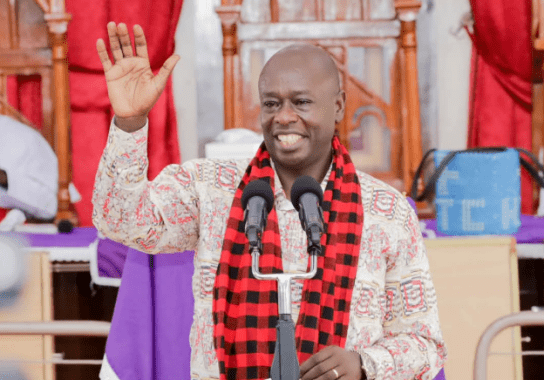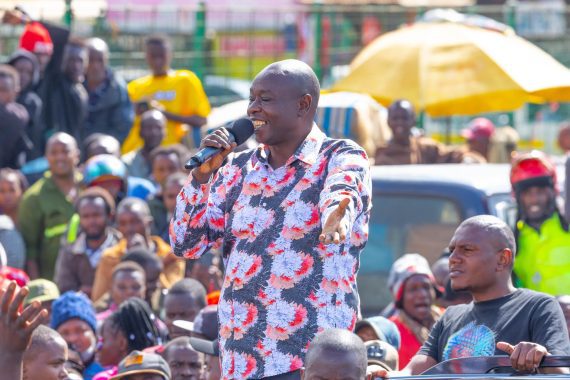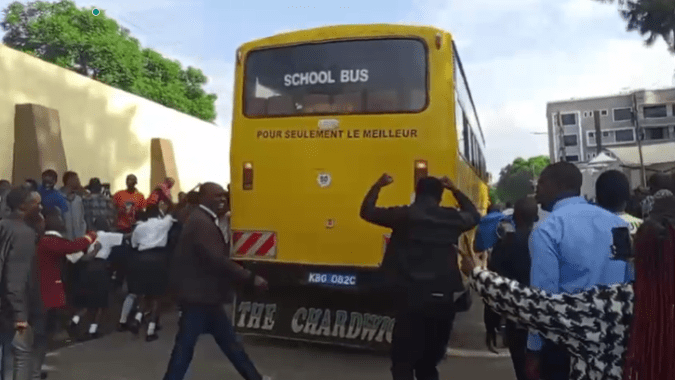A day after the national drama festival was overshadowed by its own drama, the former Deputy President Rigathi Gachagua has come out to point an accusing finger at the country’s intelligence system.
Speaking during the 2nd Mwai Kibaki Memorial Lecture and Luncheon in Nairobi on Friday, April 11, 2025, the former DP pointed out that all the tension witnessed in Nakuru could have been avoided if the intelligence officers had actively played their role.
Gachagua wondered why the play rattled key players in government, yet it had been staged at the sub-county and county levels.
He told various leaders that if the state felt offended by the play ‘Echoes of War’, intelligence officers could have raised the issue before it reached national levels.

“The play went all the way from county, and they only noticed in the final, that is because of a failed intelligence system. If a decision needed to be made that is a bad play and people should not see it, it could have been stopped because they have officers on the ground every day,” Gachagua claimed.
Criticises Ruto’s government
In his speech, Gachagua did not spare his former boss, President William Ruto. The former second in command wondered why Ruto’s administration was so insecure.
Gachagua also questioned the constant bile against young people by the current regime. In a subtle tackle, Gachagua told high-profile leaders who attended the lecture that Ruto’s government was beefing with Form Two and Three girls, echoing some social media users.
“We are looking at what is happening about Butere Girls and we are unable to understand what is this viciousness against children by the present government, even the colonial government, which was very brutal, it never went for the children.
“We have seen a situation where the administration has panicked because this one term is becoming real, so they have gone berserk, and they are now fighting shadows, including schoolgirls; form two girls, form three girls—these are harmless girls,” Gachagua stated.
“How fluid is your government if girls can bring you down, surely? What is this bile against young children? We saw the killing of Gen-Zs and the abductions of young children. What is this bile against young children? As we move on, let’s pray for our country,” he added.

Echoes of War
Echoes of War is set in a fictional kingdom where the youth have lost faith in their leaders. It features battles with the police while drawing parallels to recent protests and other social issues in the country.
The play also examines the disconnect between the young and older generations.
It was initially disqualified from the drama festival under unclear circumstances, but a High Court ruling overturned the decision and ordered it to be included.
However, on Thursday, April 10, 2025, Butete Girls only sang the national anthem and left the dias, protesting the apprehension of the play writer, Cleophas Malala.

Tension flared as residents gathered to watch the controversial play, forcing police to lob teargas.
Speaking afterwards, Education Cabinet Secretary Julius Ogambo questioned Malala’s involvement, insisting that he was a teacher at the school.
Despite his explanation, the government decision sparked criticism across the country, with various bodies condemning the police and state actors for trying to suppress freedom of expression.